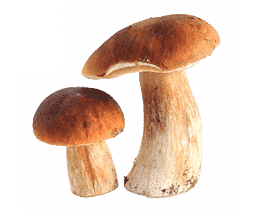
Unlocking Hope for Alzheimer’s with Psychedelics

Imagine a world where a tiny mushroom could hold the key to something amazing. Some mushrooms may help unlock the mysteries of Alzheimer’s disease (AD).
This disease is a condition that affects millions of people worldwide. Alzheimer’s disease is like a puzzle for doctors and scientists.
It’s a type of dementia, a condition that makes it hard for people to remember things and think clearly. Let’s explore how a special compound found in certain mushrooms, called psilocybin, might offer hope in the battle against Alzheimer’s.
“Globally an estimated 50 million people have a diagnosis of dementia”
Understanding Alzheimer’s Disease
A Frustration in the Search for a Cure
Doctors and scientists have been searching for a cure for Alzheimer’s for a long time. They’ve tried many different treatments.
But so far, they haven’t been successful in finding a cure. It’s a bit like trying to find a treasure with a map that’s not quite right. That’s why scientists are now looking at a different approach.
And it’s something quite surprising: using psychedelic compounds.

Exploring Psychedelics

You might wonder, what are psychedelic compounds? Psychedelics are special substances that can change the way people think and feel.
Psilocybin, found in magic mushrooms, is a psychedelic. They can make people see and experience things in a different way.
Some people have described their experiences with psychedelics as very meaningful. Magic mushrooms are being studied as a way to help people with anxiety and depression[2].
These conditions can make people feel sad or worried a lot. Scientists have found that psychedelics might help.
Randomized Controlled Trials
Roland Griffiths was a clinical researcher at Johns Hopkins University for over 50 years. He passed away in October of 2023.
He published a landmark study in 2006. His study showed that just one dose of psilocybin produced experiences that were personally and spiritually significant.
These experiences weren’t just momentary; they made long-lasting positive changes in the participants. That’s called “sustained symptom reduction.”
Since his paper in 2006, more and more clinical trials have been conducted to learn more about the effects of psilocybin and the brain. They’ve studied the effectiveness of treatments for:
- Depression and anxiety[2]
- Substance abuse (smoking and alcohol cessation)[3]
- PTSD[4]
- Fear of dying in patients with life-threatening cancer[5], and more

That’s why it’s so exciting that they’re doing more randomized controlled trials on Alzheimer’s disease. Maybe that tiny mushroom will be a key to a better quality of life for seniors!
A New Glimmer of Hope

What’s exciting is that these compounds might also offer hope for people with Alzheimer’s[6]. It’s like discovering a new tool in the treasure hunt for a cure.
Studies have shown that these compounds can make brain cells work better. It’s sort of like oiling rusty gears in a machine.
They might even help in creating new brain cells, which is like fixing broken parts of a machine. Also, psychedelics can reduce inflammation in the brain.
This is like calming a storm inside your head. This can make thinking and remembering things better.
Conclusion: A Promising Path, But More to Explore
The research into using psychedelics to treat Alzheimer’s is still ongoing. It’s essential to remember that this is a new and exciting area of study.
Scientists are doing more research to understand how psychedelics can be used safely and effectively to treat Alzheimer’s and other conditions. It’s a bit like planting a seed in a garden and watching it grow over time.
The future of using psychedelics to treat Alzheimer’s is uncertain. But it’s heartening to know that scientists are exploring new possibilities.
This provides a glimmer of hope for people affected by this challenging condition.

References
[1] Psychedelics as a Treatment for Alzheimer’s Disease Dementia
[2] Magic mushroom compound increases brain connectivity in people with depression
https://www.imperial.ac.uk/news/235514/magic-mushroom-compound-increases-brain-connectivity/
[3] ‘Magic Mushrooms’ Help Longtime Smokers Quit
https://www.hopkinsmedicine.org/news/media/releases/magic_mushrooms_help_longtime_smokers_quit
[4] Post-Traumatic Stress Disorder Treatment with Psychedelic Drugs
https://med.nyu.edu/departments-institutes/population-health/divisions-sections-centers/medical-ethics/education/high-school-bioethics-project/learning-scenarios/ptsd-treatment-psychedelics
[5] Hallucinogenic Drug Psilocybin Eases Existential Anxiety in People With Life-Threatening Cancer
[6] Can psychedelics help patients with dementia?




